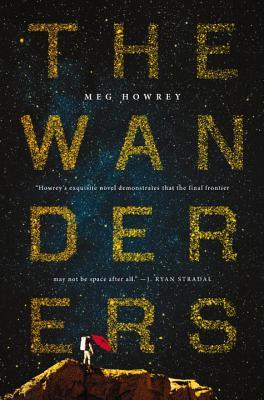What do you think?
Rate this book


370 pages, Hardcover
First published March 14, 2017
You don’t stop being a real person just because you aren’t in a real place.
"Who are these people that can withstand such a trip, the danger, the risk, the isolation, the pressure? What can these people teach us? Because if we— the species—might eventually do something like move to another planet, it would be better if we made a few improvements on ourselves first, if possible."
Intense focus on what was happening in the present eclipsed all else, but things do not disappear during an eclipse, only disappear from view.
“Why shouldn’t we feel awe? In front of a beautiful painting we do not ask ourselves is it real? We know that it is not real. It is a painting. But we can still be filled with awe at its beauty.”
To orbit the earth is not to be shot up to some magical zone where there is no gravity, but to be shot up in such a trajectory that your subsequent fall means you won't hit anything; you will persistently and permanently miss the Earth and circle around it. To have done this is to understand the persistence and permanence of falling and to understand that what is true does not always feel like what is true.
Yoshi will not just be pretending that he is going to Mars, he will be pretending to be the most perfect person to go to Mars, and maybe he is, almost without question, he is, but that doesn’t mean he won’t have to pretend to be what he really is, because aren’t we all pretending to be who we really are?
(Letter from Yoshi to Madoka) Pluto and Charon show each other only one face, never turning away. ... In astronomy, we use the word barycenter to describe the center of mass between two orbiting objects. Our Luna is smaller than Earth, and so the barycenter of Earth and Luna is on Earth, deep within it, actually. Because Charon is so large, and its gravitational influence so great, the barycenter of Pluto and Charon lies outside Pluto. Strictly speaking, Charon does not orbit Pluto, nor Pluto, Charon. They rotate around a barycenter between them. Looking only at one piece of each other. .... I have come to believe that I have loved you incorrectly. I have been orbiting a dream I cannot touch. I only know one of your faces. It is not that I didn’t want to know another face, it is that I loved that one so powerfully. Maybe I did not wish to know. There is a possibility that you are like Luna, and you see all my faces while I see only one of yours. But, forgive me, I do not think this is true. I think we are mutually locked. Perhaps this is what it means to be married. Perhaps this is what it means to be married to me. I saw a little of you, and thought it was everything. I understand that I was wrong.